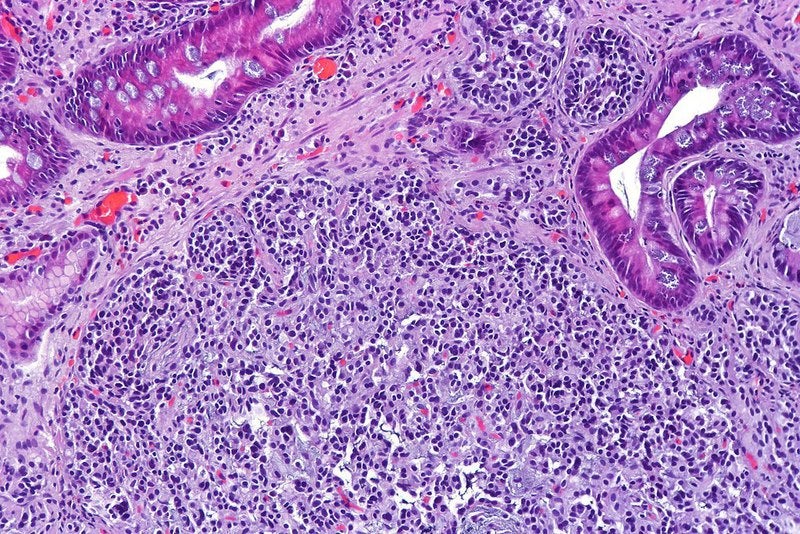
Hutchison China MediTech (Chi-Med) has reported positive data from interim analysis of the pivotal Phase III SANET-ep clinical trial of surufatinib in patients with advanced non-pancreatic neuroendocrine tumours in China.
Based on the finding that SANET-ep met its pre-defined primary endpoint of progression free survival (PFS), the study will be stopped early.

Discover B2B Marketing That Performs
Combine business intelligence and editorial excellence to reach engaged professionals across 36 leading media platforms.
Surufatinib is an oral inhibitor of angio-immuno kinase. It specifically targets the tyrosine kinase activity related to vascular endothelial growth factor receptor (VEGFR), fibroblast growth factor receptor (FGFR) and colony stimulating factor-1 receptor (CSF-1R).
Both VEGFR and FGFR inhibit angiogenesis, while CSF-1R regulates tumour-associated macrophages. Inhibition of these receptors is intended to boost the body’s immune response against cancer cells.
The dual mechanism of action of the therapeutic is expected to enable immunotherapy combinations.
During the 28-day Phase III trial, a 300mg daily dose of surufatinib was compared to placebo in low or intermediate-grade advanced non-pancreatic neuroendocrine tumour patients who have no effective therapy.

US Tariffs are shifting - will you react or anticipate?
Don’t let policy changes catch you off guard. Stay proactive with real-time data and expert analysis.
By GlobalDataApart from the primary endpoint of PFS, the trial measured secondary endpoints as objective response rate (ORR), disease control rate (DCR), time to response (TTR), duration of response (DoR), overall survival (OS), safety and tolerability.
Reporting the positive study results, Chi-Med said: “The independent Data Monitoring Committee (IDMC) determined that the study has already met the pre-defined primary endpoint of progression free survival (PFS) and as a result the study will be stopped.”
The company intends to discuss with the China National Medical Products Administration (NMPA) regarding the preparation of a new drug application (NDA) for surufatinib in this indication.
Currently, surufatinib is undergoing various trials in the US and China for the treatment of different cancers, including pancreatic neuroendocrine tumours and biliary tract cancer.





